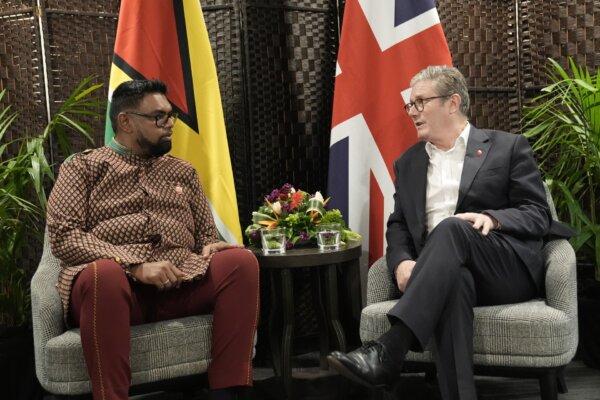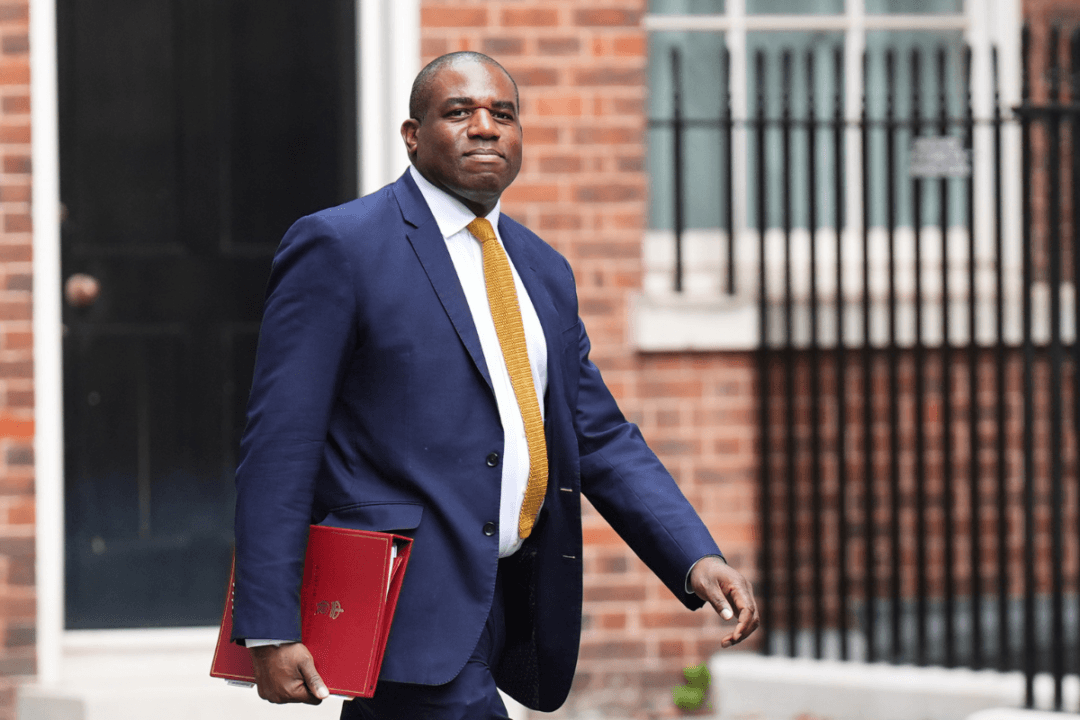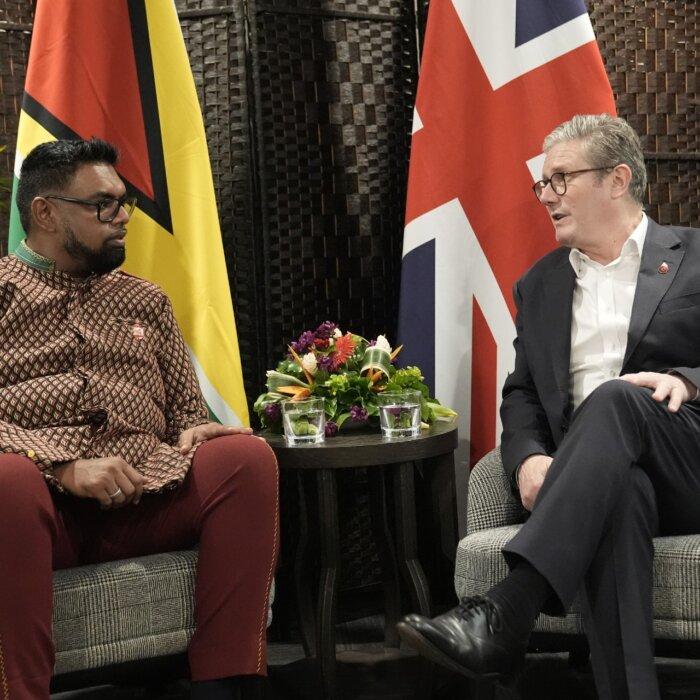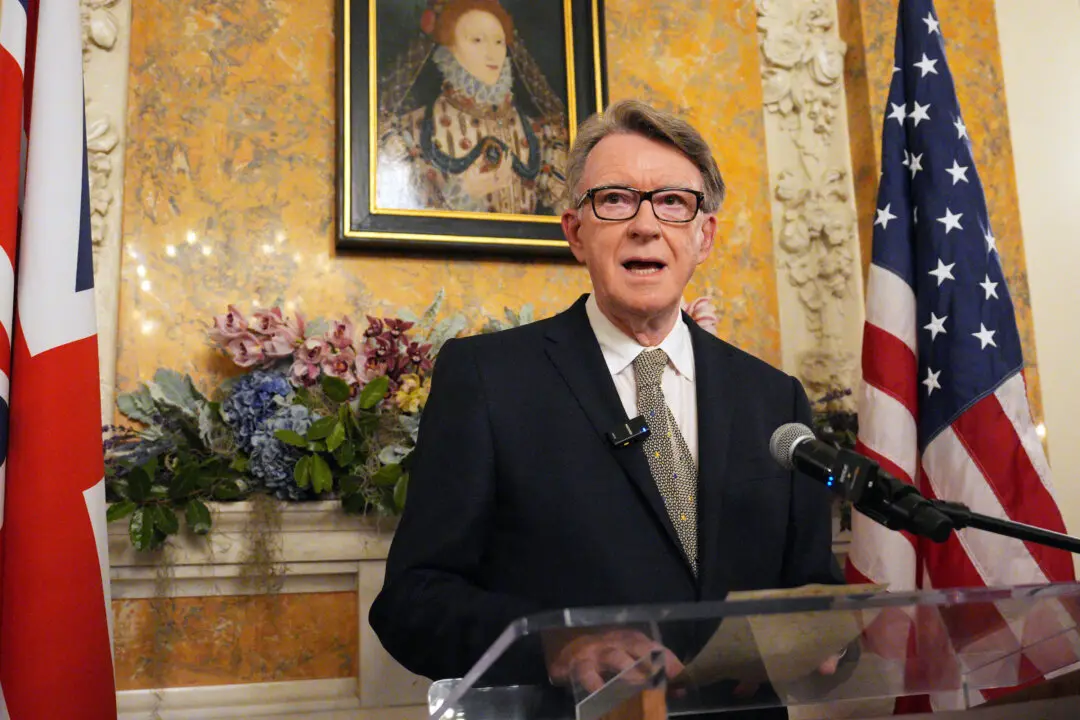Foreign Secretary David Lammy has said any conversations about reparations for the slave trade need to be about the future rather than the “transfer of cash.”
Lammy was speaking in Nigeria to sign a “strategic partnership” covering economic ties, national security and the climate, as part of his first visit to Africa in the role.
Before becoming foreign secretary, the Labour MP for Tottenham had indicated his support for the highly controversial idea of reparations on numerous occasions.
Cost-of-Living Crisis
“It’s not about the transfer of cash, particularly at a time of a cost-of-living crisis around much of the globe, and certainly in the UK,” he told the BBC.“That is not the debate I think that people are wanting to have. They’re wanting to think about the future.”
Describing slavery as “horrific and horrendous in many, many ways,” he said scars had been left and the UK government had apologised for the country’s role in the trade.
Lammy’s position appeared to have shifted since his time in opposition. Speaking in a House of Commons debate in June, 2018 he, said: “The Caribbean nations have been united in wanting to put the issue of reparations back on the table.
“It is important that this country hears and listens to those calls for support, particularly against a backdrop of the government making it clear that they wish to enter into trade negotiations with those countries once again.
“Let us consider: what do reparations look like for those Caribbean nations? How do we make that work? What dialogue do we as a country need to have with those people?”
And at a Guyana High Commission event in 2018, Lammy said, “The truth is that the people who got reparations after slavery were the slave-owners… No reparations were ever given to any slaves,” before calling for “a different dialogue that is about our economic improvement.”
Lammy continued his calls when he was elevated to the shadow cabinet by Sir Keir Starmer.
He told Boston radio station WBUR-FM in 2020: “The starting point is truth and reconciliation … we’re no longer in a society where we question notions like white privilege.
“And then we get to a point where we have to discuss power and reckoning and repairing—and that to some extent is obviously financial, and involves endowments.”

‘A Fresh Approach’
The Foreign Office said that Lammy is now pursuing “a fresh approach” that “works productively from Morocco to Madagascar.”“Our new approach will deliver respectful partnerships that listen rather than tell, deliver long-term growth rather than short-term solutions and build a freer, safer, more prosperous continent,” Lammy said.
“I want to hear what our African partners need and foster relationships so that the UK and our friends and partners in Africa can grow together.”
The partnership with Nigeria will cover economic ties, national security and climate change, with Lammy expected to meet Nigerian President Bola Tinubu to discuss further collaboration around trade and the climate.
The trip will also take in South Africa, where Lammy is due to meet foreign minister Ronald Lamola and agree on the development of a new UK-South Africa Growth Plan.
Lammy added: “Growth is the core mission of this government and will underpin our relationships in Nigeria, South Africa and beyond.
“This will mean more jobs, more prosperity and more opportunities for Brits and Africans alike.”
Lammy’s comments follow those of the prime minister, who said that reparations were not up for discussion in any talks the UK had with any other nation. Starmer said that while he understood the “strength of feeling” from some nations, he wanted the present generation to learn from the past rather than be defined by it.
Claim UK Owes £18 Trillion
The Brattle Report, published last year by the University of West Indies—and backed by Patrick Robinson, a judge who sits on the International Court of Justice—claimed that the UK owed more than £18 trillion in reparations for its role in slavery in 14 Caribbean countries.In a recent opinion poll, 24 percent of white people living in the UK (who were not all British) said that they supported the government paying reparations to black people living in the UK, whereas 61 percent of black people backed the idea.
The UK government played a significant role in ending the slave trade through the act of abolition in 1807 following a long campaign led by the MP William Wilberforce.
Slavery was outlawed throughout the British Empire from 1833, and the Royal Navy devoted much of its time and resources to preventing the slave trade on the oceans in the 19th century.
As well as pointing out that the UK made the slave trade illegal 217 years ago, opponents of reparations point to the fact that white people have also been enslaved historically, and that some black people were themselves slave traders and owners.
Starmer announced at CHOGM that Britain will host a UK-Caribbean forum in 2025, “focused on looking forward, not back,” and with issues around climate, education, trade, and economic growth on the agenda.







